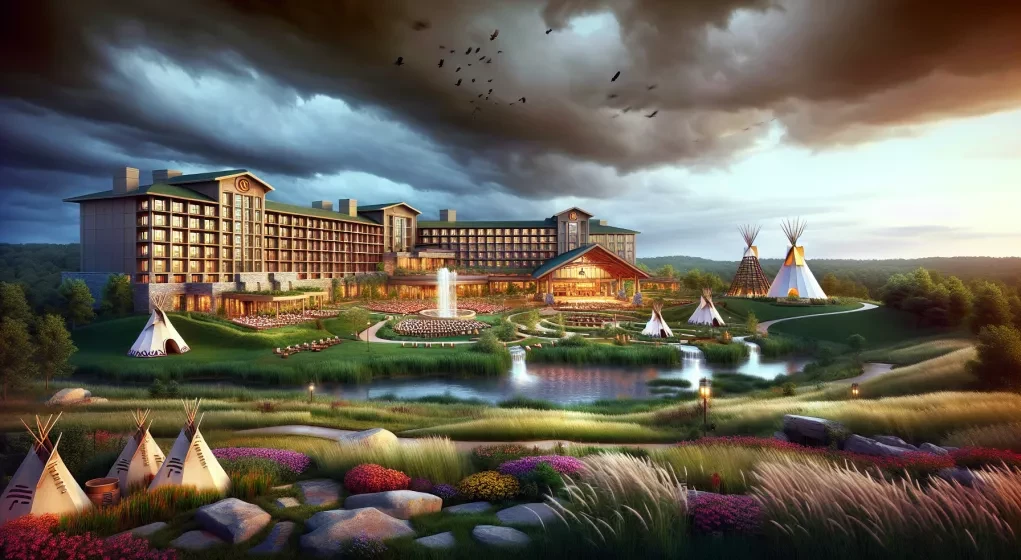In the rolling hills of Oklahoma, where the historic Route 66 carves through the landscape, the Iowa Tribe harbors ambitions that are grand in scope yet stifled by bureaucracy. The tribe’s vision to construct a new gaming haven looms large, but it’s being overshadowed by the clouds of a protracted dispute—a dispute that entangles the highest echelons of state power with the sovereign ambitions of the tribe.
Once upon this terrain, you’ll find the modest Ioway Casino, a beacon of entertainment for those drawn to the thrill of chance. Yet, just across this storied highway, lies a stretch of land earmarked for transformation. The Iowa Nation has set its sights on this empty canvas, envisioning a larger, upscale venue—a resort that promises to eclipse its humble precursor in both scale and splendor.
The tribe’s blueprint extends to a direct exit ramp from I-44, a path that would shepherd visitors straight into the casino’s awaiting embrace. This tactical move would remove the current inconvenience—a winding, five-mile detour that serves as an unintentional test of patrons’ commitment.
Ownership and the right to self-determination over their sovereign land, the tribe prepared to fund and build both the casino and the ramp. But as they sought consent to bring their project to life in 2019, an unexpected condition arose. A new gaming compact with the state was the gatekeeper, a stipulation that appeared suddenly on the horizon.
Governor Kevin Stitt was at the helm of this new demand, intent on remolding the state’s commercial rapport with its tribal casino proprietors. Invoking the imminent expiration of a model compact from 2004, Stitt envisaged a revised compact, one that would hike revenue-share payments and seemingly tip the scales of fairness.
The tribes mounted their defense with a simple counter: the existing compact was designed to continue beyond its supposed expiration date, with all the ease of rolling dice across a table—no renegotiation was necessary. In a twist befitting the tales of old, the Oklahoma Supreme Court upheld this perspective in a ruling that would vindicate the tribal collective.
Amid this backdrop, only two of the thirty-eight federally recognized tribes have bent to Stitt’s new compact terms. This outcome echoes the debates that rattled the Senate Joint Tribal Relations Committee, who last month spurned the revised pacts over fears of unchecked casino proliferation in Oklahoma County—the beating heart of Oklahoma City and its surrounding populous sprawl.
The Iowa Tribe’s aspirations remain ensnared by Stitt’s unrelenting quest for increased financial yields. Jacob Keyes, the Chairman of the Iowa Nation, has expressed the tribe’s steadfast disinterest in Stitt’s compact structure. The attempt to carve out an accord with Stitt has morphed into a tableau of strained silence—one could not rightly call it a relationship.
Yet, within the gridlock and the melee of negotiation, Keyes retains an unyielding optimism. Allies in the legislature fan the embers of hope that this venture will find its wings. If the tribe’s plans unfold as envisioned, by April next year the construction will commence, birthing a mid-2026 gleaming new temple to the gaming arts. An empire of excitement holds its breath, poised to rise from the dust across from the Ioway Casino’s stoic presence on Route 66.






